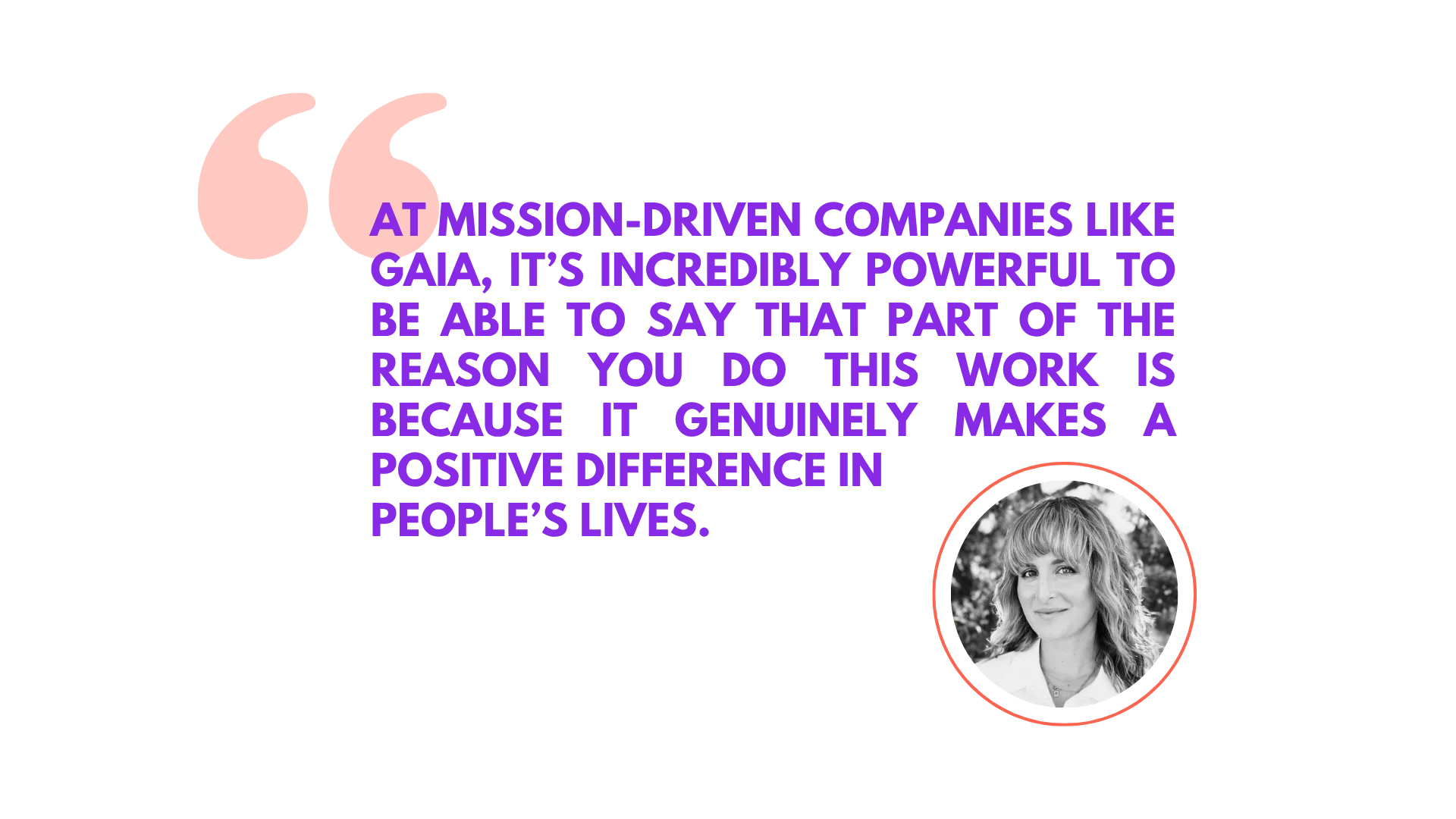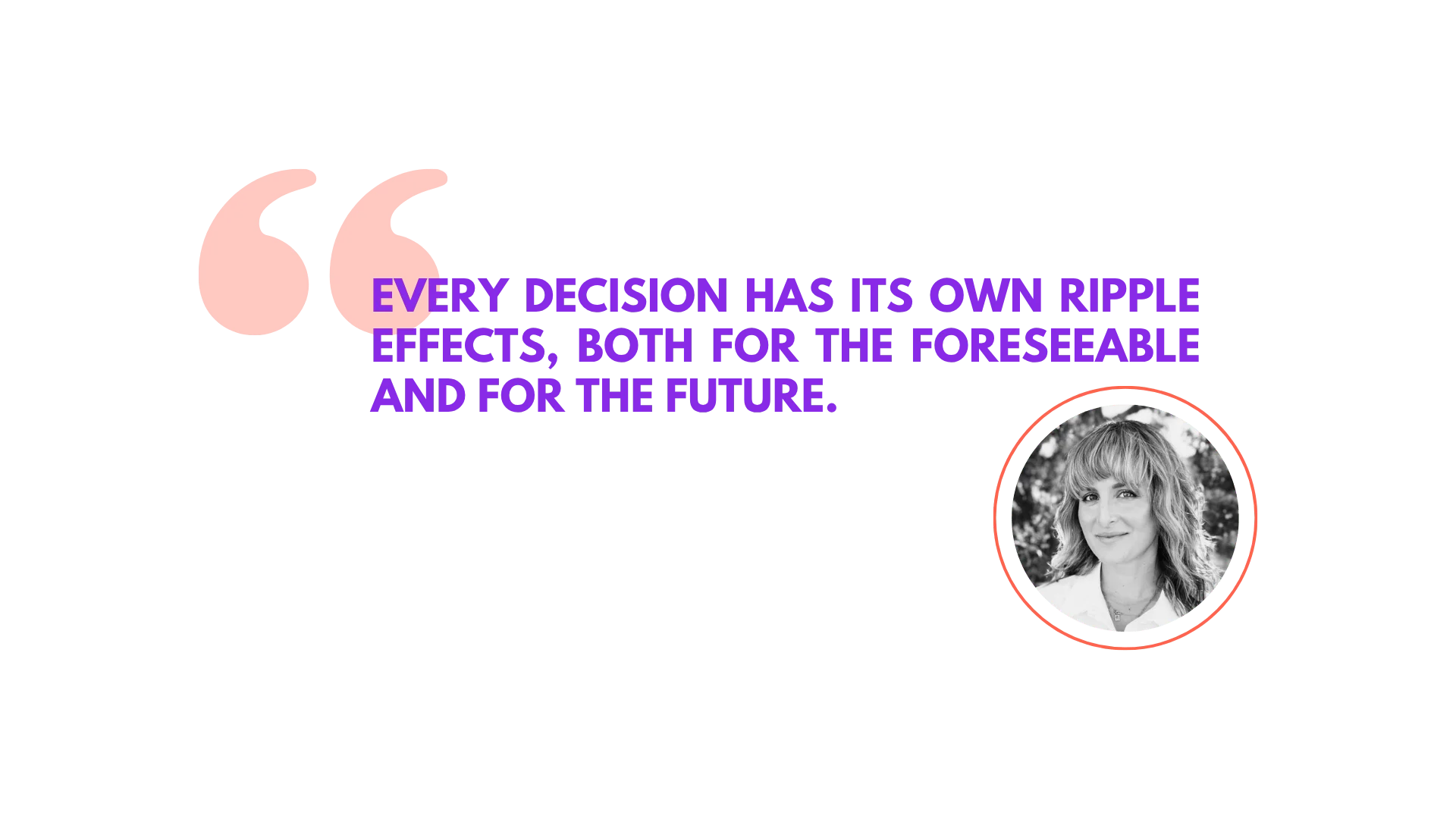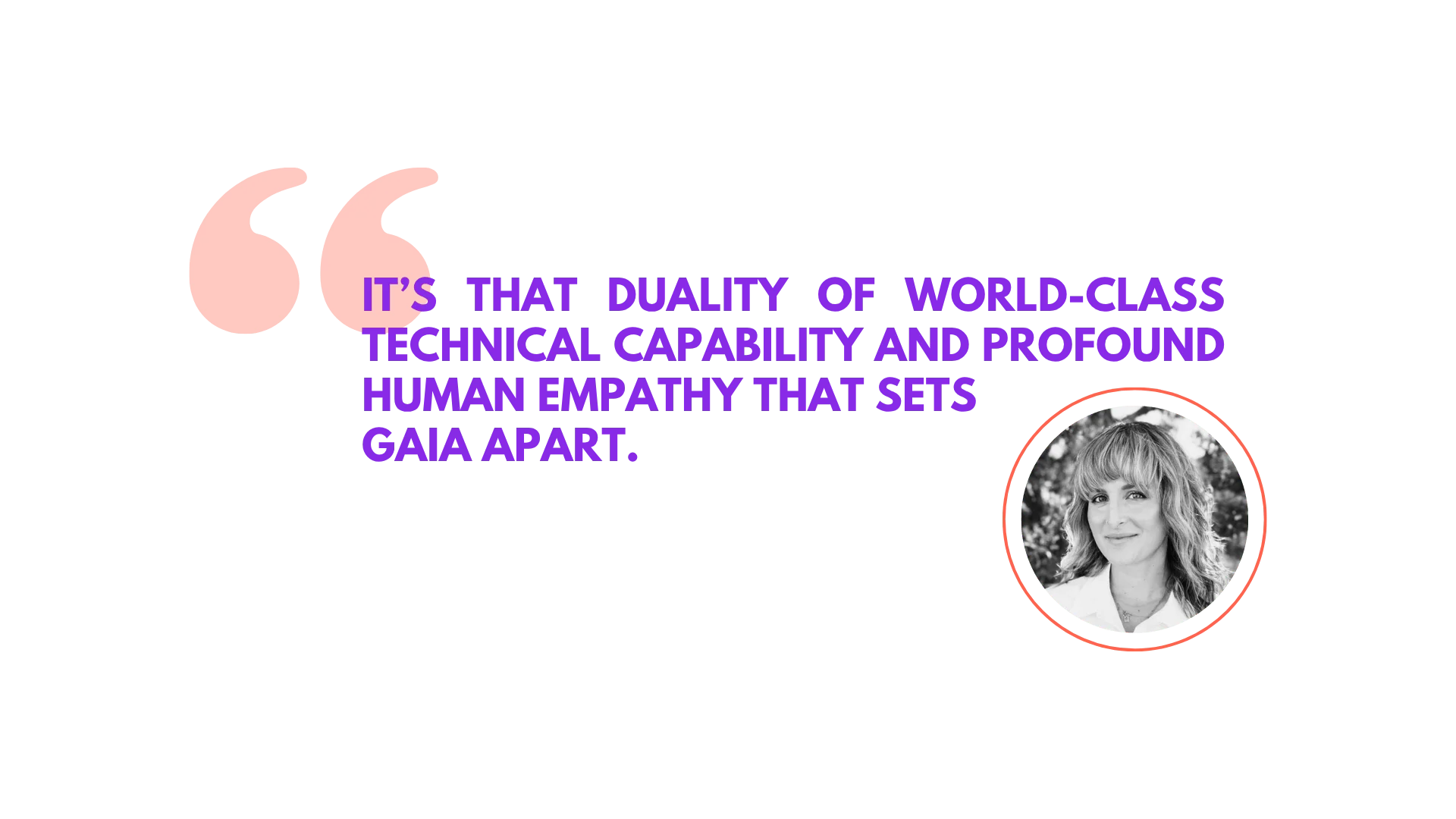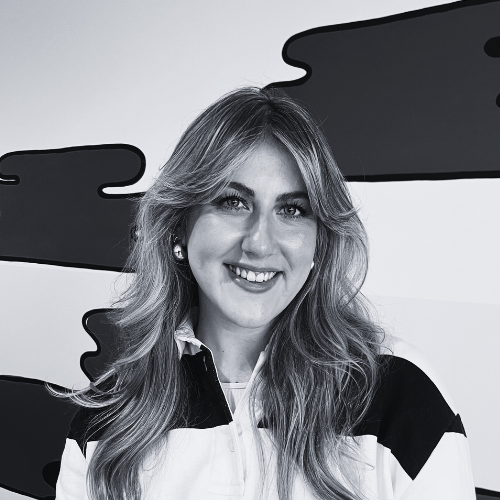Building People-First Teams in Mission-Driven Tech: Lida Manukyan on Hiring and Scaling at Gaia
02 Oct, 20255-6 minsWhen it comes to scaling a mission-driven company, talent is everything.For Lida Manukyan, j...

When it comes to scaling a mission-driven company, talent is everything.
For Lida Manukyan, joining Gaia as Head of People & Talent was an opportunity to shape a team around a mission that truly matters. See, Gaia isn’t your typical tech company. It’s transforming access to fertility care, combining cutting-edge data and innovation with deeply human support.
This is a mission that touches people’s lives in profoundly personal ways, and it’s one that guides every decision Lida makes about hiring, developing and retaining talent. Building the right team, for her, is more than just hiring for skills. It’s about weaving together empathy with expertise, creating a culture where people care as much about the mission as they do about doing their best work.
Drawing on lessons she learnt at Netflix and NBC Universal, Lida understands what great looks like at scale. More importantly, she knows how to bring that mindset into a smaller, purpose-driven environment.
In the following Q&A, Lida shares her insights on hiring thoughtfully, scaling with intention, and building teams where technical brilliance and human empathy go hand in hand, all in service of a mission that drives everything Gaia does.
Hey Lida! So let’s start with what first drew you to Gaia and its mission?
I’ve worked in a lot of exciting companies, but Gaia felt different from the start. I was particularly struck by how both Nader AlSalim, our CEO, and Alexia Arts, our COO, described the mission and the type of company they wanted to build.
Fertility is such a deeply personal experience, and the way Gaia combines innovation with empathy really resonated with me. It wasn’t just about building a product; their goal is to change access to fertility care. That’s what pulled me in: the chance to help shape a team that could carry such a meaningful mission forward.
You’ve also held leadership roles at huge companies like Netflix and NBC Universal. What lessons from those big tech environments have you brought into a scaling startup like Gaia?
I was at both of those companies for a good while, so I had the chance to see what growth and scale really look like on a larger scale. The biggest lesson I took away is how every decision has its own ripple effects, both for the foreseeable and for the future. A choice you make today doesn’t just solve the immediate problem; it shapes what comes next, sometimes in ways you can’t predict. Being mindful and aware of that long-term impact is something I carry with me every day.
I also learnt to recognise what ‘good’ and ‘great’ look like when processes and systems really work. When you’ve seen things run at their best, you know what’s worth replicating, even if that’s in a much smaller setting.
In these previous roles, I saw how culture and clarity can really scale. You can have thousands of employees and still feel like everyone is moving in the same direction with purpose. At Gaia, I try to bring that same mindset and intentionality. Even though we’re smaller, we think about the foundations we’re building now as the ones that will support us as we grow.

How would you describe your hiring philosophy? What do you look for when building a team?
It’s really all about balance. On one hand, it’s essential to bring in domain experts, people with deep experience in a specific function or industry. At Gaia, we sit at the intersection of finance, insurance and fertility, so having someone who’s touched one of those areas, especially fertility, can be transformative. The knowledge and context they bring really elevate how we operate.
But technical expertise isn’t everything. Some of our strongest hires have come from completely different backgrounds. They might not have worked in this space before, but they have innate curiosity, creativity, energy and excitement to grow with us. They look at problems from angles we might not see, and that fresh perspective is invaluable.
For me, getting that balance right is so important. The mix of specialists who know their craft inside out alongside people who challenge our thinking in new ways, that’s what makes a team resilient, adaptable and capable of truly driving the mission forward.
IVF and fertility are both deeply personal and highly technical. How do you balance those qualities in the people you hire?
It really comes down to empathy. You can be the most brilliant engineer or product manager, but if you don’t understand the human side of what we do, you’ll miss the point. We look for people who can hold both the rigour to solve complex problems and the empathy to remember who we’re solving them for. That balance is what makes our culture strong.
What struck me immediately when I joined – and what I hear repeatedly from new hires – is just how deeply the team cares. No one here is indifferent to the mission. They care about our members, about what people are going through on their fertility journey, and they bring that humanity into their work every day. That’s rare and it’s really, really special.
At the same time, technical excellence is foundational. Many of the people we bring in are drawn to the mission specifically, but we also want them to feel that Gaia is as exciting a technical challenge as joining an AI scaleup or a major tech player. That’s on us to tell the story of what’s possible with our data, our platform, and our innovation, so we attract people who are motivated by both sides of the equation. Ultimately, it’s that duality of world-class technical capability and profound human empathy that sets Gaia apart.

How do Gaia’s values show up in the internal culture and in the way decisions get made?
Our values shape everything we do. One of our core values is ‘them, not you’, meaning we put members first. Every internal or business decision starts from that place: what does this mean for the people we’re here for?
Of course, profitability and growth matter in any company, but when you’re orienting decisions around members, the outcomes will naturally look and feel very different. It creates a culture that attracts a certain kind of person and keeps them here – people who care deeply about impact.
You see it in the everyday choices we make. Whether we’re deciding how to allocate resources or which features to build, the question is always: how does this serve our members? Even in tough moments, this alignment makes decision-making clear.
How do you think mission-led companies like Gaia are shaping the future of what it means to be a tech company?
Right now, when I speak to candidates, the mission piece is what really matters. It’s not just about salary, the role or the perks. People want to know what impact they’ll have on the world through their work. In a time when so much of the world feels uncertain or worrying, that question of purpose becomes central.
At mission-driven companies like Gaia, it’s incredibly powerful to be able to say that part of the reason you do this work is because it genuinely makes a positive difference in people’s lives. That sense of purpose motivates teams in ways that numbers, KPIs or perks alone never could. It’s what draws people in, keeps them engaged, and shapes the kind of culture we’re building, where impact comes first and drives everything we do.

Looking ahead, what does Gaia’s next chapter look like, and what are you most excited for?
Right now, it’s all about the impact. Every person we help makes the work worthwhile. But what’s really exciting is the opportunity to scale and bring our approach to more people, in more places. The US is a huge part of that journey.
We launched there at the end of last summer and have been laser-focused on building traction and expanding our member base. Fertility treatments in the US are prohibitively more expensive compared to most countries, so the potential to make a real difference is enormous.
It’s also such a topical issue, and there’s a real need for more accessible, compassionate models of care. We’re only just beginning to scratch the surface, so for Gaia, the near-term focus is to grow in the US and ensure more people can benefit from what we’re building.
Want to hear more stories like this? Subscribe to The Stack for more insights with founders and leaders shaping the future of their industries.
The bottom line
Hiring contractors shouldn’t create more work. With Propel, you get flexible, on-demand talent while we manage the admin behind the scenes so you can stay focused on what you do best while we take care of the rest – onboarding, contracts, compliance, and payments.
Your contractors get paid on time. You get one invoice.
Curious how we can help your team scale?



